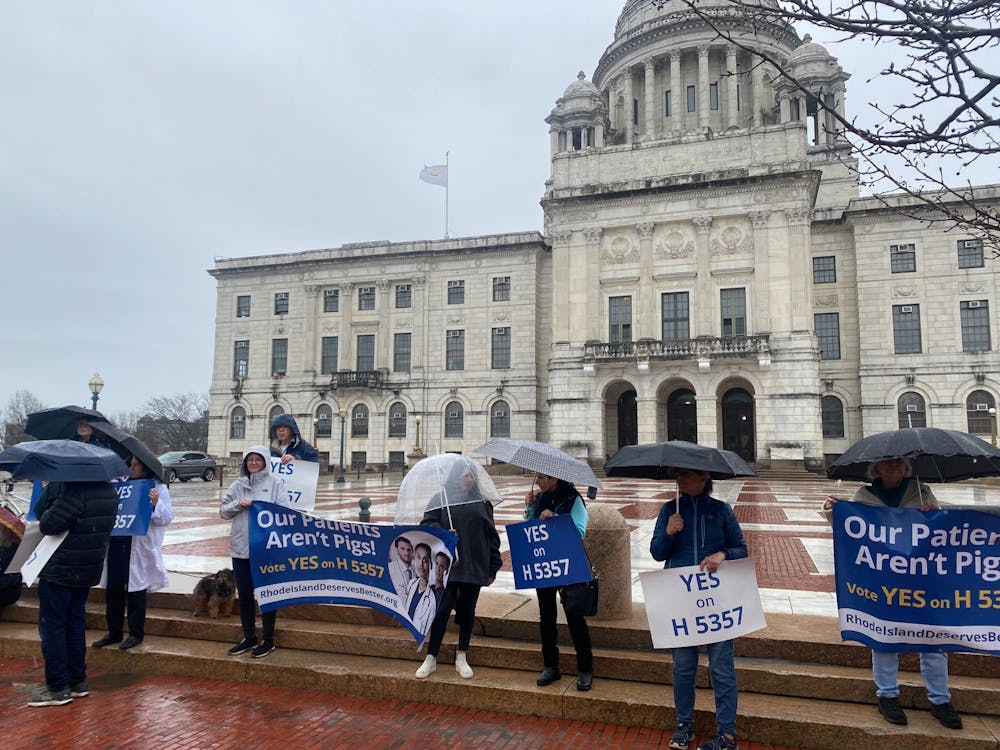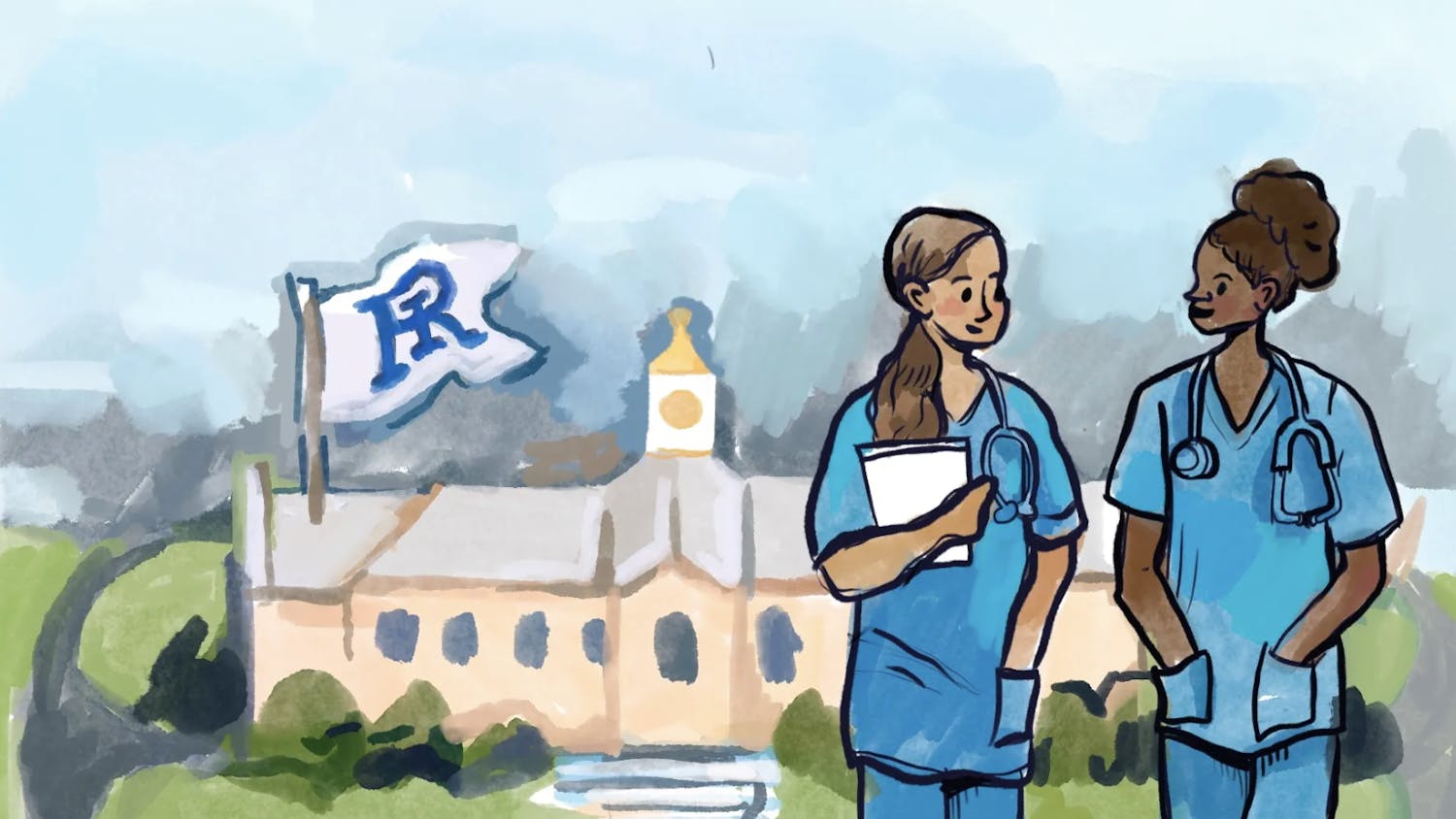On Thursday afternoon, physicians and activists gathered outside of the Rhode Island State House carrying signs that read: “Our patients aren’t pigs.” The protesters were rallying in support of R.I. House Bill 5357, which would prohibit the use of medical training procedures on live animals if alternative training methods exist or comparable training programs in the state do not also utilize live animals.
Rhode Island Hospital — “the principal teaching hospital for the Warren Alpert Medical School,” according to its website — is one of eight medical centers in the United States and Canada, and the only one in Rhode Island, to have emergency medicine residency programs that use live animals, according to a PCRM report.
Currently, Brown uses live pigs to teach emergency medicine physicians. The University has previously been criticized for using animals in training procedures.
Ryan Merkley, director of research advocacy at the nationwide non-profit Physicians Committee for Responsible Medicine — which sponsored the protest — said that the goal of the protest was to “reach legislators … and get their attention on H5357.”
The bill is “very straightforward,” Merkley said. “It simply says: Look, if everybody else is doing it without animals, then you should, too.”
Bill 5357 was introduced to the House Feb. 3. At a March 2 hearing, the committee recommended holding the bill’s passage for further study.
Throughout the day, protestors circled Brown’s campus, Rhode Island Hospital and the State House, driving in trucks with flashing lights and billboards reading “Our Patients aren’t Pigs! Vote YES on H5357.”
State Rep. Rebecca Kislak ’94 (D-Providence), a co-sponsor of the bill, spoke with The Herald at the protest. “We should not be causing suffering in other living beings and there should be a better way to do this,” she said. Kislak could not provide a projected timeline for the bill.
Lynn Taylor M.D. RES’00, who previously served as a faculty member at the University, attended the protest in support of the bill, which serves “to improve patient care (and) medical training for emergency medicine (and) physicians, and to alleviate the suffering of animals,” she said.
According to Taylor, the use of simulations in emergency medical procedure training that replicate human anatomy and physiology makes it so“there’s really no rationale for continuing to operate on pigs.”
Taylor described her residency training, which involved procedures on live pigs, as “traumatizing” and something that she regrets.
“Researchers and leaders at Brown University and Rhode Island Hospital are committed to the highest standards in the responsible use of animals in the limited instances they are used for training medical professionals,” wrote University Spokesperson Brian Clark in an email to The Herald.
“It is necessary that the residents are able to quickly respond to and effectively treat the most complex situations,” Clark added. “As part of the Brown Emergency Medicine residency program, the training is overseen by physicians and a veterinarian, and is conducted in full compliance with all pertinent laws and regulations.”
Margaret Peppercorn, another physician who attended the protest, also has experience using live pigs in medical training procedures. “I regret it to this day,” she said. “I thought it was awful then but I didn’t see it as a choice.”
Peppercorn said that alternative training methods are also more medically rigorous. The procedure for pigs is different from humans because the “skin of a pig is much harder and more difficult,” she explained. “The training is substandard to be using pigs.”
Members of the Brown Animal Rights Coalition worked closely with PCRM to circulate an online petition calling on the University to end its practice of training on live animals. The petition has received close to 4,000 signatures.
“Students are in support of this bill,” said Hari Dandapani ’23, one of BARC’s student leaders who attended the protest.
Ruthie Cohen ’23.5, who also rallied in front of the State House, added that “as Brown students, it’s our responsibility to hold our administration accountable for the cruelty."

Ryan Doherty was the managing editor of digital content and vice president of The Herald's 135th editorial board. He is a junior from Carmel, NY who is concentrating in chemistry and economics. He previously served as a university news and science & research editor, covering faculty and higher education.





